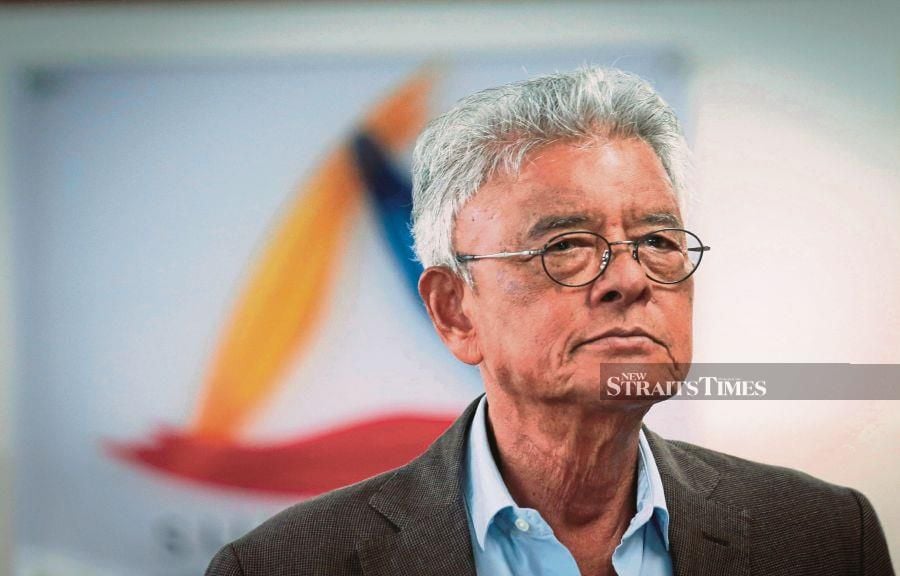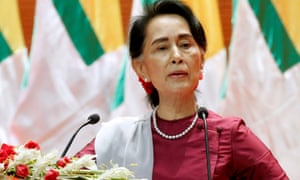
Prime Minister Dr. Mahathir Mohamad’s Address to the United Nations General Assembly was poised, articulate and to the point.
He did not mince his words when he spoke about global political, economic, social and environmental conditions since his last address 15 years ago, in 2003.
The gist? That the world has not changed much in terms of reform; that the developing world is still being bullied by powerful nations; that the trade war between the US and China continues to impoverish poorer and smaller countries; that there is a growing ambiguity of social values, and that the notion of freedom has become skewed, at best.
Intellectually-sharp and laudable, Dr. Mahathir delivered his poignant message, that the “new Malaysia” is not naive. He told the UN General Assembly that Malaysia will continue to soldier on with other countries, through the United Nations, to make the world a better place, economically, politically, socially and environmentally.
In foreign policy jargon, Mahathir delivered a warning against the acts of dangerous, threatening Hitlers and the misconceptions of peaceful, law-abiding allies.
Overall, his Address championed the aspirations of the developing world and smaller non-aligned nations. However, there is more that we should take away from his Address, in order to render his thoughts more relevant in the domestic Malaysian context.
There are three key areas the new Malaysia should focus on. Mahathir spoke of global terrorism. Although he did not specify the actual definition of the term (or of the word “terrorist”), one can read between the lines. He lamented that there is “something wrong with our way of thinking, with our value system. Kill one man, it is murder, kill a million and you become a hero”.
What he actually means is that the powerful have the capacity to define concepts in order to justify certain acts. Terrorism, as coined by the powerful, is a notion applied to non-state actors, jihadists and transnational communities of oppressed people who react violently to achieve justice.
Powerful states have the sole purpose of pushing their economic and political agendas and so a global understanding of the concept of terrorism was born after 9/11.
Yes, about 3,000 died mercilessly at the World Trade Center in 2001. But almost 130,000 (mostly civilians) perished in one day, in Hiroshima and Nagasaki, in 1945. This is more than 43 times the death toll at the hands of the so-called Islamic terrorists.
Yet, throughout the decades after World War Two, the acceptable narrative describing US geo-political advances (and those of her allies) was never termed “terrorist” or “terrorism”.
I am not condoning such acts as no mass killing of civilians can be considered civilised behaviour. However, we must consider here the socio-political manipulation of labels.
In the Malaysian context it is happening all around us to the detriment of the common people. For instance, the notion of “the rights of Malays” and “the welfare of the Malays”. What rights are we focusing on? The right to get a job based on race or the right that all qualified and capable Malays should be appropriately awarded?
For me, it is the latter. Yet, certain politicians still choose to speak about the unfair treatment of the Malays and that the new Pakatan Harapan government should be tasked to help bring them up to greatness and to be protected.
The label of “rights” is bandied around but its meaning is deliberately couched in ambiguity for an ulterior political motive.
Using Mahathir’s example of the plight of the Rohingyas, his message was an appeal for “caring”; that just because a nation is independent it does not mean the world should close an eye to domestic suffering and injustice.
He reiterated that nations need to solve the problems of global conflict, racism and bigotry by going back to the root causes.
Similarly, the state of Malaysia’s education system needs care and we need to identify the root causes of the inequality that exists in our schools and universities.
Agreed, our teachers and professors are not being massacred, and neither are our students. But mentally, the massacre began 61 years ago.
The public university leadership has failed to produce thinking professional graduates and to my mind, this is humanity’s greatest form of oppression.
We are all aware that our public university leadership is more concerned with national and international rankings, administrative positions of the academic staff, titles and research funding.
But are the research funds, for instance, channeled into meaningful projects to help society overcome real problems of poverty and discrimination?
Are the researchers and academics “caring” enough to plan such research even though they may not be awarded a future government contract or a datukship?
This brings me to my next point: values. Mahathir commented that there is something wrong with our way of thinking. To my mind, the sole purpose of an education is to instil good values. These include moderation, dignity, integrity, hard work, perseverance and honour. No matter what religion or creed one belongs to, these are universal values.
In post-election Malaysia, this topic has surfaced many times. But I fear it is just a narrative with no substance.
There are many issues that have surfaced since PH took over. From the appointment of key ministerial positions, to presidents of universities, to the PD move, to child marriage, the list goes on.
Nepotism, cronyism and corruption still loom over us but it is not too late for values reform. What better way to start than to realise that, while it is important for us to preach values to the international community, we should apply this to our own society.
There is a need for all Malaysians to delve deeper into Mahathir’s UNGA Address because he was not only sending a message to the superpowers and their allies.We should also see his message as a warning to tackle our own domestic crises; problems that have arisen as a result of past mistakes, on-going stubbornness to address those mistakes and a lack of foresight.
Dr.Sharifah Munirah Alatas is an FMT reader.
The views expressed are those of the author and do not necessarily reflect those of FMT.








